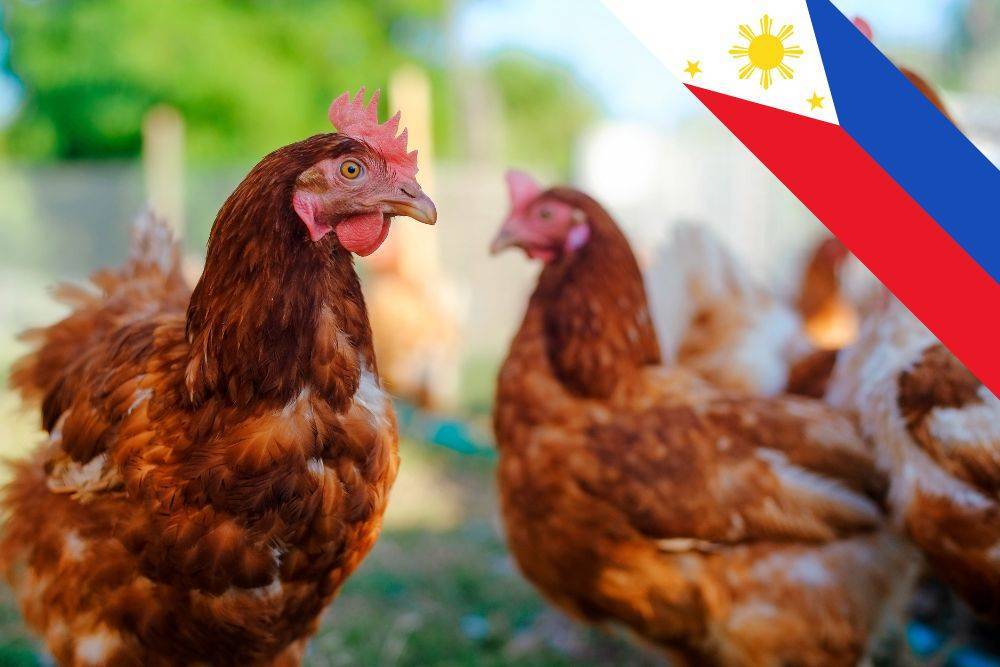The Philippine Department of Agriculture has temporarily halted all bird imports from Australia following confirmed avian flu outbreaks.
This precautionary move aims to protect local poultry industries and safeguard public health by preventing the introduction of the highly pathogenic virus into the country.
Impact on Local Poultry Industry
The ban affects all live birds and poultry products, including meat and eggs. Authorities emphasise the importance of biosecurity measures and heightened surveillance to detect any potential local outbreaks. The Philippine government has also intensified monitoring and reporting mechanisms to ensure the swift identification and containment of any avian flu cases that may arise domestically. This is crucial as the poultry industry is a significant part of the country’s agricultural sector, providing livelihoods to many and contributing to food security.
Response from Poultry Sector
Poultry farmers and industry stakeholders have expressed support for the government’s decision, acknowledging the necessity of measures to prevent economic losses and protect public health. However, they also call for support mechanisms, such as subsidies or financial aid, to mitigate the impact of the ban on their operations.
Global Context of Avian Flu
This decision aligns with global efforts to control the spread of avian flu, which has seen a rise in cases across various regions. The Philippines joins other countries in taking stringent actions to mitigate risks associated with international poultry trade. The World Organisation for Animal Health (OIE) has reported multiple avian flu incidents globally, prompting countries to review their import policies and reinforce health checks. Recent outbreaks have been noted in Europe, Asia, and the Americas, making international collaboration and information sharing vital to controlling the disease.
New Developments in the US
Recent avian flu outbreaks in the US have surprisingly spread to dairy cows, with confirmed cases in Minnesota and Iowa, and several other states reporting infected herds. Over 80 dairy herds and three dairy workers have tested positive for the H5N1 virus since late March. The infection of dairy cows marks a significant development in the epidemiology of avian flu, as it suggests the virus can cross species barriers more readily than previously understood.
Health Implications and Monitoring
Although the risk to the general public remains low, the spread of avian flu to mammals like dairy cows is concerning. Scientists are closely monitoring the virus for potential mutations that could facilitate human transmission. Current human infections have been linked to direct contact with infected animals, and there is no evidence of human-to-human transmission yet. The Centers for Disease Control and Prevention (CDC) and other health agencies are conducting ongoing surveillance and research to better understand the virus’s behavior and potential health implications.
Expert Insights on Transmission
Dr. Jane Doe, a virologist at the University of Minnesota, emphasised the need for vigilance: “The crossover of avian flu to mammals, particularly dairy cows, is alarming. It necessitates rigorous monitoring and immediate containment strategies to prevent any mutations that could pose a higher risk to human health.”
Precautionary Measures and Vaccination Efforts
Health officials urge the public to avoid raw milk and emphasise the importance of pasteurisation. The US maintains a stockpile of vaccines and is preparing additional doses matched to the current H5N1 strain. This highlights ongoing efforts to manage and mitigate the virus’s impact on both livestock and humans. Public health advisories also recommend strict hygiene practices for farm workers and those handling livestock to minimise the risk of zoonotic transmission.
Global Vaccination and Research Initiatives
International efforts are also underway, with organisations like the World Health Organisation (WHO) coordinating research and vaccine development. Collaborative initiatives aim to enhance understanding of avian flu dynamics, improve diagnostic tools, and ensure preparedness for potential pandemics.
Have a pressing question for a doctor? Medical Channel Asia has launched a community forum page where you can get questions answered by a medical specialist. Visit the community forum here.

